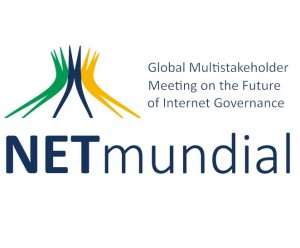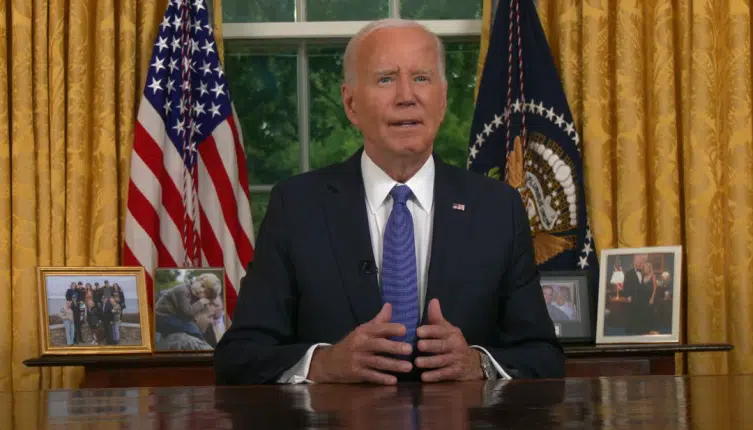Why is the Netmundial in São Paulo, Brazil — the global multistakeholder meeting that is supposed to be determining the future of Internet governance after the federal government relinquishes the Internet Assigned Numbers Authority (IANA) functions in 2015 — concerning itself with issues like National Security Agency (NSA) surveillance, of which it has absolutely no control over?
In a draft document, “Roadmap for the future evolution of Internet governance,” the Netmundial includes a section on intelligence agencies: “Internet surveillance – Mass and arbitrary surveillance undermines trust in the Internet and trust in the Internet governance ecosystem. Surveillance of communications, their interception, and the collection of personal data, including mass surveillance, interception and collection should be conducted in accordance with states’ obligations under international human rights law. More dialogue is needed on this topic at the international level using forums like [the UN Internet Governance Forum] IGF and the Human Rights Council aiming to develop a common understanding on all the related aspects.”
While legitimate questions have been asked of companies like Verizon that have complied with the secret U.S. Foreign Intelligence Surveillance Court orders to furnish the phone records of every person in the country, nobody has yet to accuse the Internet Corporation of Assigned Names and Numbers (ICANN) or the Commerce Department of somehow having been the hub that made the surveillance possible.
The insinuation that those functions were ever somehow related to NSA surveillance is not only misleading, it is counterproductive.
Put simply, Internet surveillance by the NSA or any other intelligence agency has almost nothing to do with assigning domain names and Internet Protocol (IP) addresses. And when the U.S. Commerce Department finally gives up its authority over Internet names and numbers, it will not stop NSA mass surveillance all over the world — on the Internet, or anywhere else.
Yet, proponents of the multistakeholder model of Internet governance pretend that surveillance is somehow the issue to be addressed, and are using revelations made by former U.S. government contractor Edward Snowden as an excuse to forward a process that in reality has been in the making since 1998.
Speaking at the UN General Assembly in 2013, Brazilian President Dilma Rousseff, the host of the Netmundial, called for the “establishment of a civilian multilateral framework for the governance and use of the Internet and to ensure the effective protection of data that travels through the web.”
Does her vision for Internet governance somehow include global governance too? Her whole speech was about how somehow wresting U.S. control over IANA functions would stop intelligence agencies from engaging in surveillance.
It is a delusion.
In the meantime, the Netmundial Internet governance documents spend almost no time discussing issues of critical importance that ICANN’s successor actually will have to deal with. Namely, how to prevent the IANA functions from ever being used to engage in censorship.
A single sentence reads that Internet governance should be “accountable,” and that “Mechanisms for checks and balances as well as for review should exist.”
That’s it? If there’s censorship when domain names and IP addresses are assigned, there will be a review? By whom? Does anyone really believe that some multilateral panel reviewing claims of censorship will be “accountable” to the nearly 2 billion web pages worldwide?
How would that be better than the current framework? U.S. Commerce Department oversight of IANA functions provides three critical checks should something go awry: 1) the First Amendment’s protection of the freedom of speech, the press, and of religion; 2) federal court oversight and judicial review of the government contract with ICANN; and 3) the fact that the contract is rescindable.
If ICANN, or any successor contractor, were to ever engage in censorship, it could be adjudicated in an American court of law with rules of evidence and a preference for the freedom of speech. And if worse came to worst, the government could just pull the plug on the contract.
Unless and until the Netmundial or any other meeting can come up with a better mechanism to watch the watchers and protect free speech, then members of Congress in particular should be wary of supporting any transition of these functions to some as of yet unnamed international body that will be unaccountable.
Legislation by Rep. Mike Kelly (R-Penn.) would require congressional authorization before any transfer could occur. Based on how the Netmundial is going so far, it should be taken up immediately.
The pitfall of Internet governance is not surveillance. How domain names and IP addresses are assigned cannot and will not address what intelligence agencies do. The real danger of unaccountable, global Internet governance is censorship. And the Netmundial neither has a plan nor any effective institutions in place to deal with it when the unthinkable occurs.
Robert Romano is the senior editor of Americans for Limited Government.







